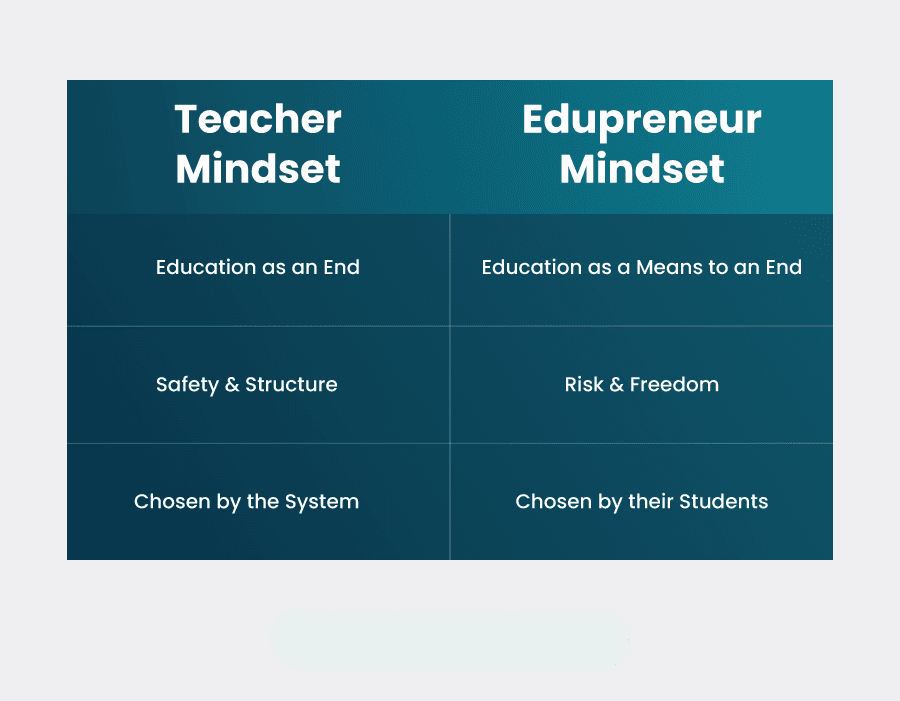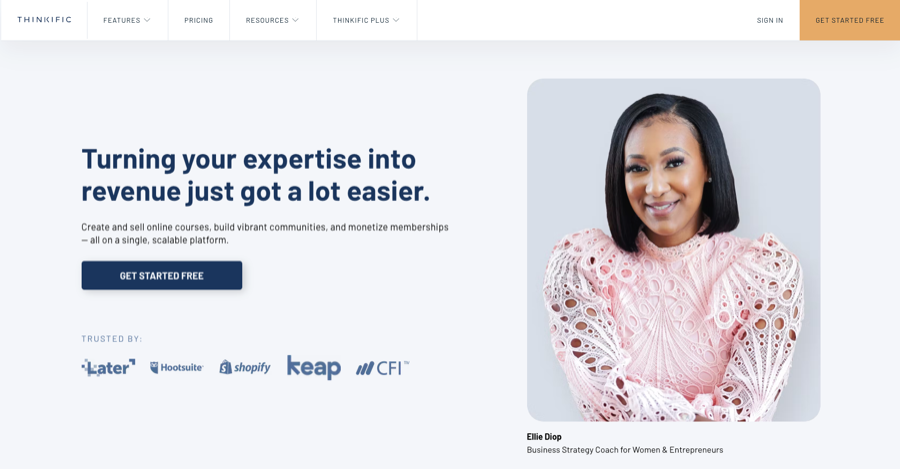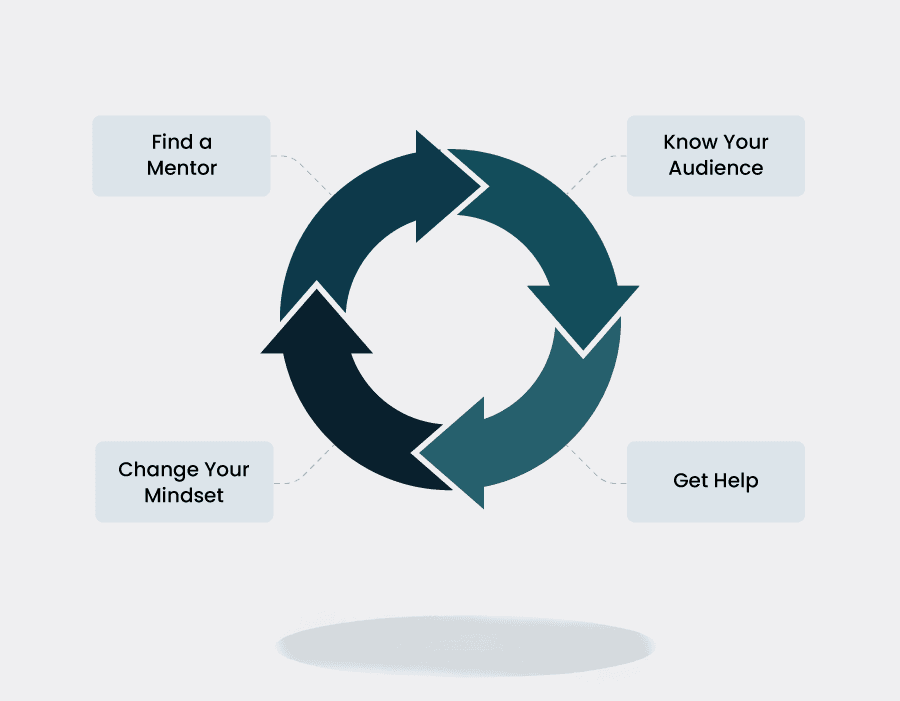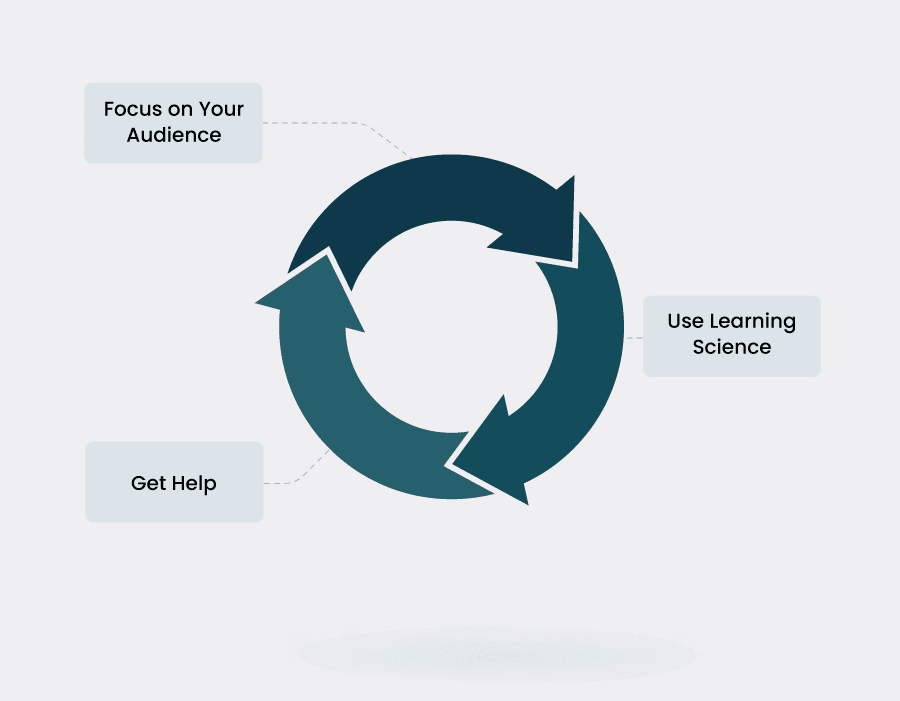We earn a commission from partner links on this site. This doesn’t affect our opinions or evaluations.
It is undeniable: the global health crisis has significantly amplified the necessity for online educational resources, and individuals known as edupreneurs are strategically leveraging this trend.
Given that this heightened interest spans a wide array of subjects, edupreneurs operating within diverse specialized areas are keenly anticipating the opportunity to engage a larger student base. For example, individuals are actively:
Understandably, edupreneurs are observing these trends and are developing innovative learning solutions designed to serve these expanding markets. So, what steps can you take to achieve success in this dynamic field and effectively seize these emerging prospects?
Within this discussion, you will gain a clear understanding of what defines an edupreneur, how this role differs from that of a traditional educator, and the compelling reasons why you might consider embarking on this path. To conclude, we will furnish you with practical suggestions and guidance on how to effectively launch your career within the education sector.
Let us begin this exploration.
As is common with many newly coined terms, various definitions often emerge, frequently shaped by the specific circumstances in which individuals employ them.
Within the realm of digital marketing, the term “edupreneur” signifies an entrepreneurial individual who operates an enterprise centered around education – essentially, an education-focused entrepreneur.
Here is how the reputable source eLearning Industry articulates the concept of edupreneurship:
“It’s an entrepreneurial, income-generating business activity that has been strategically intertwined with education for the purposes of sustainable change at a social and economic level.”
In essence, edupreneurs commercialize educational offerings as a product designed to generate revenue and achieve profitability.
Online, digitally delivered courses empower specialists to package and distribute their most insightful pieces of knowledge. Consumers, in turn, can access these valuable resources presented in an educational structure, which consequently enables them to attain new heights of proficiency.
We observe this model functioning effectively in contemporary society through several distinct applications.
Are you interested in acquiring the skill of playing the guitar? Have you ever harbored aspirations of learning various dance forms? Would you appreciate understanding the techniques of pottery making, book writing, or even establishing a garden?
Any individual can master these abilities at their convenience by discovering a course offered by an instructor whose teaching style resonates with them.

Video School Online offers 100+ courses for learning creative skills
As an edupreneur, your path involves identifying a specialized area where your skills excel and then constructing a business model around the exchange of your expertly curated knowledge for financial compensation.
Several key differences distinguish an edupreneur from a traditional educator. We will now examine these points more closely.

The majority of traditional educators aspire for their students to develop a genuine passion for the process of learning. Indeed, as Plutarch famously articulated, “the mind is not a vessel that needs filling, but wood that needs igniting.”
Traditional educators aim to kindle this enthusiasm for acquiring knowledge within their students, perceiving education itself as the ultimate objective. To illustrate, in a course designed by such an educator, the learning objectives would predominantly concentrate on the students’ grasp of a field such as neuroscience.


Within a conventional educational environment, individuals typically operate under the protective framework and organized design of a pre-existing system. Adherence to designated responsibilities is crucial, as the system’s efficacy relies on the collaborative efforts of all participating educators.
Edupreneurs, in contrast, navigate a landscape with more substantial inherent uncertainties. Although they possess the latitude to pursue greater innovation and address specific market demands they discern, capitalizing on these prospects necessitates a willingness to invest their personal capital and relinquish the stability offered by established educational structures.
They embody an entrepreneurial spirit: the core objective is to transcend a lifestyle and earning potential governed by a formal system, aspiring instead to construct a way of life supported by a flourishing, self-driven enterprise.
The established education system carefully selects educators, who are required to satisfy rigorous criteria to instruct students and must consistently meet the expectations of their supervisors to maintain their positions.
Entrepreneurs in the educational sphere, conversely, are directly chosen by their target learners. This dynamic allows them to express their authentic selves and draw in prospective clients who connect with their individual character, teaching methodology, and background. To remain operational, their focus must be on ensuring the contentment of their student base.
Should you possess an unconventional life journey, gaining entry into a more conventional education system might prove unattainable. Nevertheless, in the role of an edupreneur, a significant past misstep could, paradoxically, become the very factor that persuades a student to enroll in your course.
The current period presents an ideal opportunity to embark on the path of an edupreneur! Merely a few years prior, the notion of online courses was significantly less acknowledged as a legitimate educational framework.
Presently, the market for online learning is experiencing swift expansion, and the venture of selling online courses and training programs represents a far more attainable business prospect than it was previously. Flourishing edupreneurs globally are capitalizing on this favorable climate daily.
The most advantageous aspect is that initiating such a venture requires minimal resources. Simply by utilizing your personal computer and dedicating a modest amount of time, you can gain entry to the necessary information and instruments to establish your edupreneurial enterprise, encompassing:
Let us delve into a more thorough examination of each of these components.
As you embark on your path as an edupreneur, a natural inclination will be to acquire knowledge concerning business operations and the principles of entrepreneurship. Numerous experienced professionals are available who can impart the essential understanding you require to begin.
Furthermore, if you are currently an educator, it is not a prerequisite to abandon your established academic career in order to launch your own business venture.
The following video (not provided in this text) typically outlines some of the fundamental information necessary to establish your own business and ensure it operates legally within the United States. If your business is situated in another country, it is prudent to consult with a professional who is well-versed in the pertinent laws of your specific region.

You do not require a substantial inventory of tangible assets to manage an entrepreneurial business in the education space.
Regarding physical equipment, your existing computer will generally suffice for most operational needs. Additionally, a wide array of digital tools is accessible that allow you to develop an online course at no cost, or with minimal financial outlay. These resources can assist with identifying your target market, structuring your educational material, promoting your offering, processing payments, and distributing your online course.

Developing online courses enables you to encapsulate and monetize your specialized knowledge. The subsequent crucial phase involves communicating your offering to individuals who require it, forming your intended group of learners.
Thankfully, cultivating an audience in the current digital landscape is considerably more straightforward than it was only a short time ago.
With the ascendancy of social media platforms, the impact of influencer collaborations, and the proliferation of online course directories, connecting with an audience has become predominantly a function of proficiency and dedication, rather than other limiting factors.
Furthermore, when contrasted with traditional face-to-face instruction, online courses possess a clear benefit: you have access to a worldwide pool of potential clients and an extensive array of instruments to engage with them.
Explore this comprehensive resource that details effective strategies for promoting your online course. If your objective is to identify and connect with your audience, this guide serves as an excellent initial step.
Are you prepared to operate a flourishing enterprise as a prosperous edupreneur? Here are several valuable pointers to help you commence your journey.
As a current educator, you possess the foundational abilities required for structuring and presenting educational material. Your next developmental step involves gaining proficiency in the commercial aspects of such an endeavor. Here are several initial recommendations to guide your start.

Prosperous entrepreneurs possess a strong understanding of the requisites for managing a business and, from this perspective, hold a distinct advantage. If you identify with this group, your primary attention should be directed towards the principles of learning science and the methodologies of adult education.

Steps for entrepreneurs becoming edupreneurs
Employ the most relevant indicators to assess your accomplishments. While discussions often center on completion percentages or examination results, these are infrequently the optimal gauges of genuine success.
Given that students are investing financially in their education, what holds significance for them serves as a more accurate measure. Consider these illustrative examples:
When designing the curriculum for your course, contemplate what specific outcomes must occur for your audience to perceive it as a successful learning experience. Subsequently, devise a method to effectively capture and document these results.
Embracing the role of an edupreneur in 2025 represents an excellent strategic move if you are aiming to fully capitalize on prevailing global market dynamics.
The information-based economy is currently undergoing a significant expansion. If you perceive yourself as having expertise in any particular domain, or if you recognize an existing knowledge deficit within your specialized area, then choosing to pursue an edupreneurial career is a very sensible and promising direction.
To familiarize yourself with some of the most critical initial actions you will need to implement for achieving success and effectively launching your business, we invite you to explore these informative guides our team has meticulously prepared.
So, have you resolved to take that initial significant step toward becoming an edupreneur? If you have, then allow us to extend a hearty welcome to this exciting community!
The good news about edupreneurship is that your educational content doesn’t have to fit into a narrow definition of what education is. If you know a lot about something, you can teach others about it! You can create educational content about nearly anything, including gardening, personal development, home repair, jewelry design, and furniture making. The possibilities are endless. Plus, your future students are the ones who decide to trust you, and most don’t care about formal education. Rather, they need to believe in your capacity to teach them what they want to know.

Zara Moreen contributes her talents as a content writer at sellingonlinecoursesguide.com, where she creates engaging and informative content that guides course creators through the intricacies of online education. Her writing helps demystify the process of creating and selling online courses while providing practical value to the platform's readers.

Zara Moreen contributes her talents as a content writer at sellingonlinecoursesguide.com, where she creates engaging and informative content that guides course creators through the intricacies of online education. Her writing helps demystify the process of creating and selling online courses while providing practical value to the platform’s readers.

We respect your privacy and will never spam you.